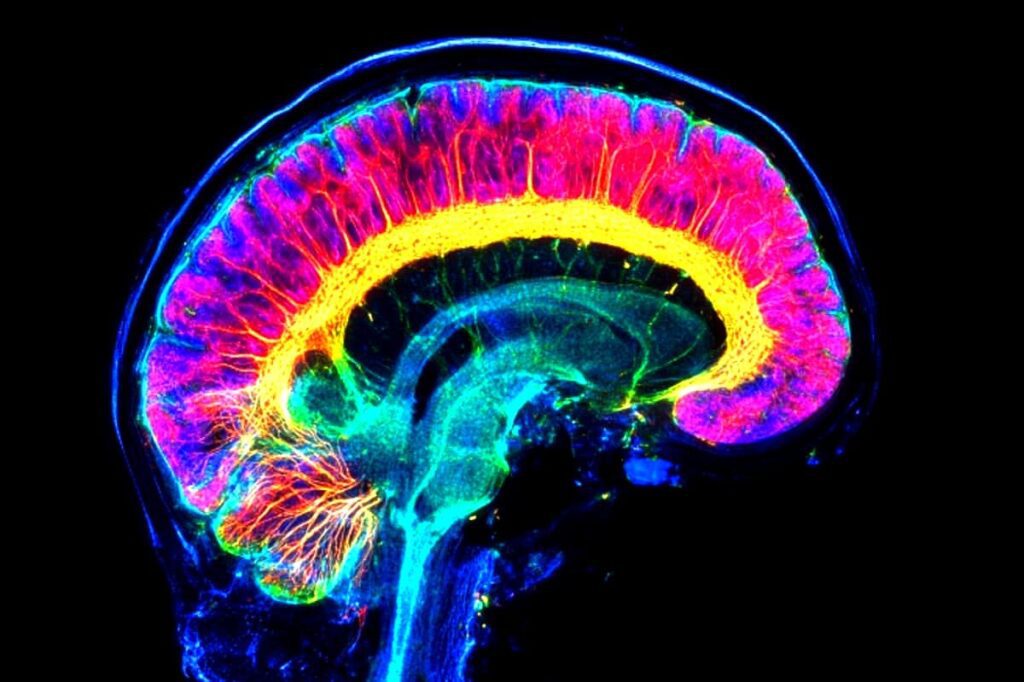
Why do adults generate new brain cells? Recent research published in Cell Stem Cell has unveiled the first cellular evidence linking adult neurogenesis—the production of new brain cells—to improved verbal learning and memory. These cognitive functions are essential for engaging in conversations and retaining auditory information. This discovery could revolutionize how cognitive decline is addressed, offering new avenues for restoring brain function.
The study, conducted by scientists from USC Stem Cell and the USC Neurorestoration Center at the Keck School of Medicine of USC, examined brain tissue from individuals suffering from mesial temporal lobe epilepsy (MTLE). This condition is marked by persistent seizures and accelerated cognitive decline, making it a valuable model for studying the effects of neurogenesis.
Michael Bonaguidi, a co-corresponding author and associate professor of stem cell biology and regenerative medicine, explained the significance of the findings. “Treating patients with epilepsy allows us to explore why the brain generates new neurons. One major reason appears to be its role in learning from conversations,” he said.
Co-corresponding author Charles Liu, a professor of neurological surgery and director of the USC Neurorestoration Center, emphasized the relevance of these discoveries for epilepsy patients. He added, “These findings are crucial for understanding learning and cognitive decline in all individuals but are particularly significant for the epilepsy patients who participated in the research.”
The research team, led by first authors Aswathy Ammothumkandy and Luis Corona, investigated the relationship between neurogenesis and various forms of cognitive decline in MTLE patients. They focused on how the production of new brain cells influences areas such as verbal learning, memory, intelligence, and visuospatial skills.
Over the first 20 years of seizures in MTLE patients, the scientists observed a dramatic decline in cognitive abilities, particularly verbal learning and memory. Simultaneously, the process of neurogenesis slowed significantly, with immature brain cells nearly disappearing during this period.
Further analysis revealed a striking correlation: the reduction in immature brain cells was most strongly linked to declines in verbal learning and memory. This discovery highlights the critical role of neurogenesis in maintaining these specific cognitive abilities.
Interestingly, the study also revealed a key difference between human and animal brain function. While neurogenesis in rodents and other lab animals primarily contributes to visuospatial skills, its role in humans appears to center around verbal learning and memory. This distinction underscores the value of studying human brain tissue to gain deeper insights into our unique cognitive processes.
The brain tissue used in this study was generously donated by patients undergoing epilepsy surgery at the Rancho Los Amigos Epilepsy Center. During these complex procedures, surgeons removed the affected hippocampus in one piece, successfully curing most patients of their seizures. This tissue became an invaluable resource for advancing research and health equity.
The research provides unprecedented cellular evidence of how neurogenesis impacts human cognition. By uncovering the link between neurogenesis and verbal learning, the study opens the door to exploring potential treatments that could boost neurogenesis. These treatments may include therapeutic drugs or lifestyle changes, such as exercise, that support brain health.
Michael Bonaguidi noted, “Our work lays the groundwork for future research aimed at improving verbal learning and memory by enhancing neurogenesis. These approaches could benefit not only patients with MTLE, Alzheimer’s disease, and dementia but also anyone experiencing age-related cognitive decline.”
The study involved a collaborative effort from numerous experts, including neuropsychologist Jason Smith from the Medical University of South Carolina and researchers from institutions such as USC, Rancho Los Amigos National Rehabilitation Center, and Los Angeles General Medical Center.
Funding for this research came from several prestigious sources, including the National Institutes of Health, the Donald E. and Delia B. Baxter Foundation, the Cure Alzheimer’s Fund, and the California Institute for Regenerative Medicine.
This groundbreaking work highlights the potential of adult neurogenesis as a target for cognitive improvement, offering hope for better treatments for epilepsy, Alzheimer’s, and other conditions that impact memory and learning.
